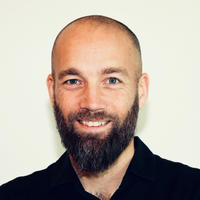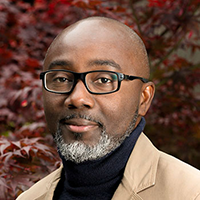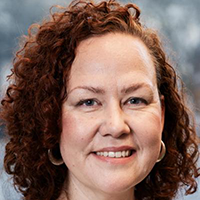Thursday: Movie and discussion
This evening seminar, with Professor Henrik Ernstson at KTH, consists of a screening of the movie "One Table Two Elephants", created by Jacob von Heland and Henrik Ernstson, which will be followed by a discussion.
When: 17:30 to 19:30 (CET). Please note that this evening seminar will last for two hours, including the movie.
Where: Teknikringen 1, KTH Campus.
For those of you who can't attend this seminar on-site, the film is available for free online together with teaching material.
Click to watch the recorded introduction on YouTube
Click to watch the recorded panel discussion on YouTube
Please note that the panel discussion starts at 19.05.
About the film
The documentary film “One Table Two Elephants” (2018) created by Jacob von Heland and Henrik Ernstson, is an 84 minute long cinematic ethnography part of a wider research projects into knowledge politics in postcolonial cities. Filmed in Cape Town, South Africa, the film uses the mundane things of plants and a wetland and follows biologists, hip hoppers, and a self-taught historian and traces how they are making sense about Cape Town and its urban nature.
Situated and grounded in lived experiences, the film surfaces difficult yet urgently needed conversations about how race, nature and the city are intertwined in our postcolonial world where history is ever present in subtle and direct ways. The films sets the background for a panel discussion around a wider discussion of “who is in the know” of cities in Africa; how to live with colonial remains that is both imprinted in the physical city form and in structures of knowing nature and cities. One film’s directors, Professor Henrik Ernstson at KTH, will join us.
Program
- 17.30 Welcome!
- 17.35 A few words from Henrik Ernstson about the film.
- 17.40 Start the film that runs for 84 minutes, so almost 1h30min.
- 19.05 Discussion with Q&A from the audience (about 25 minutes long)
- 19.30 Concluding words.
- 19.30-20.00 After discussion for those who are keen.
Panelists

Henrik Ernstson
Professor Henrik Ernstson is developing a situated approach to urban political ecology with a particular focus on southern and postcolonial urbanism. He mainly combines urban political ecology, urban studies, STS, social movement studies, and interdisciplinary research in urban and landscape ecology. He is also developing a film-based research practice as part of the environmental humanities that uses cinematic ethnography, montage, and essay film to engage in the texture, embodiment, and situatedness of political and environmental practices, knowledge and politics.
He has extensive international collaboration with co-workers, practitioners, and urban artists in South Africa, Uganda, Nairobi, Angola, the UK, Italy, the USA and Sweden, and he has led various interdisciplinary research groups with studies in Cape Town, New Orleans, Stockholm, Kampala and Luanda.
Nelson Ekane

Nelson Ekane is a Research Fellow at the Stockholm Environment Institute (SEI). Nelson has a PhD in planning and decision analysis. His research on sanitation governance disentangles how sanitation policies articulate at multiple governance levels and translate into investment and behaviour change at household and community levels. Part of his work in this area is presented in Chapter 31 of the Routledge Handbook of Water and Development. His research on risk governance involves measuring the nature and variability of public beliefs, attitudes, and policy preferences for wastewater reuse and land application of treated sewage sludge. Nelson’s recent publication in this field in Frontiers in Sustainable Food Systems is entitled Resources and Risks: Perceptions on the Application of Sewage Sludge on Agricultural Land in Sweden, a Case Study.
Kajsa Hallberg Adu

Research Coordinator Kajsa Hallberg Adu holds a Ph.D. degree in African Studies from University of Ghana and a Masters degree in Political Science from Uppsala University, Sweden. She teaches social science including African studies and development studies and has taught at Uppsala University and KTH Royal Institute of Technology, as well as at Ashesi University in Ghana. Her research interests turn to the future as she studies youth, migration, higher education, and its intersection with technology.
